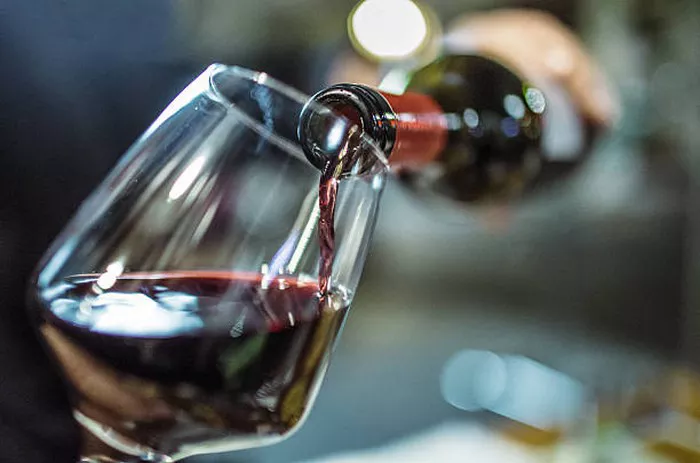In a hushed revelation, Belgium’s wine industry is quietly flourishing, with a remarkable upswing attributed in part to the ever-pressing specter of climate change. Rising temperatures, a discernible trend across Europe and the world, have become a boon for the country’s vineyards.
Pierre-Marie Despatures, a member of the team behind the thriving organic vineyard, Domaine du Chenoy, situated near Namur in Wallonia, emphasized the correlation between favorable climatic conditions and bountiful grape harvests. Domaine du Chenoy, already a recognized name in the world of wine, stands tall in comparison to its French counterparts and global peers.
Pierre-Marie shared insights into their success during an event held in Brussels on September 7th, aptly named “Sofitel Wine Days.” This gathering formed part of a series of similar events and offered an opportunity to appraise Belgium’s burgeoning wine production while savoring culinary delights from “The 1040,” a popular restaurant at Sofitel Brussels Europe, nestled within the EU Quarter. The recently reopened rooftop terrace/bar at the hotel added to the charm, providing panoramic views of the city’s surroundings.
Belgium’s involvement in wine production is far from novel, with Domaine Du Chenoy marking its 20th anniversary this year. The winery’s journey, overseen by Philippe Grafe, a Belgian who acquired the land in 2003, has weathered significant challenges, including a major fire, economic crises, and the recent global health pandemic. Nonetheless, it has emerged as a resounding success story.
Five years ago, Pierre-Marie and his brother Jean-Bernard, an expert in winemaking, joined the management team. Their tenure has seen the operation expand from 11 to 15 hectares, producing around 100,000 bottles annually. A noteworthy 70% of this output comprises sparkling wines, with the remainder consisting of red, white, and rosé varieties. The estate’s distribution primarily targets smaller retailers, and approximately 20% of its sales stem from its Wallonian estate.
Belgium has garnered acclaim in recent years for the quality of its sparkling wines, exemplified when Belgian sparkling wine clinched the 2019 International Revelation Sparkling Wine Award at the international wine competition in Brussels, triumphing over several French champagnes—an outcome that left even French competitors in awe.
In a recent development, retail giant Colruyt has announced plans to commence the production of its own organic wines in Belgium, set to grace supermarket shelves in 2026. The group has already begun cultivating four hectares of vines in Frasnes-les-Anvaing, Hainaut province, with an additional five hectares slated for the coming year.
Pierre-Marie believes that climate change, while a source of concern in many spheres, presents a unique opportunity for the Belgian wine sector. He explained, “It is a good thing for the wine sector in Belgium. It means it is now much easier to plant vines in Belgium than in the past, and the better weather means you should have a better grape.”
Bolstered by Belgium’s burgeoning expertise in wine production, coupled with naturally conducive soil conditions, the future shines bright for the nation’s wine industry. Pierre-Marie underscores their commitment to being “completely organic” and utilizing “disease-resistant” grape varieties, a testament to their dedication to both quality and sustainability in winemaking.


